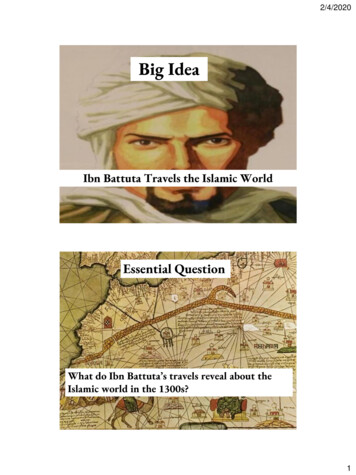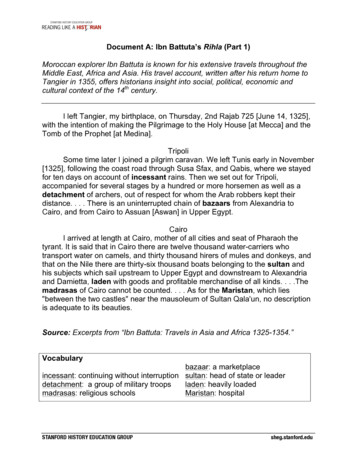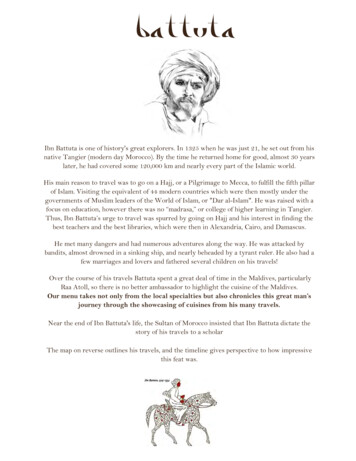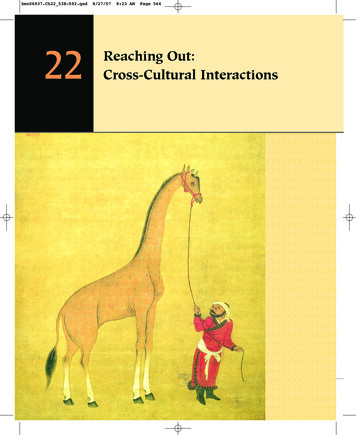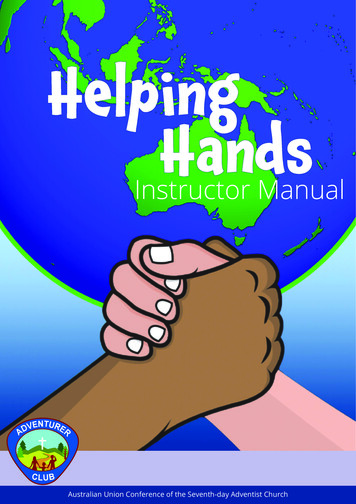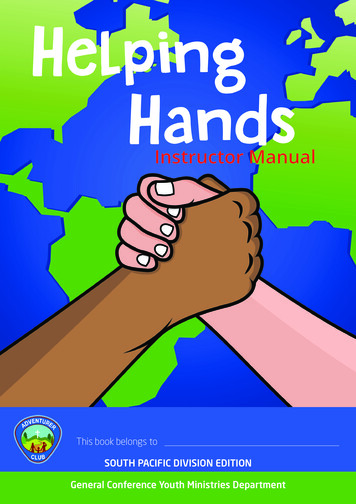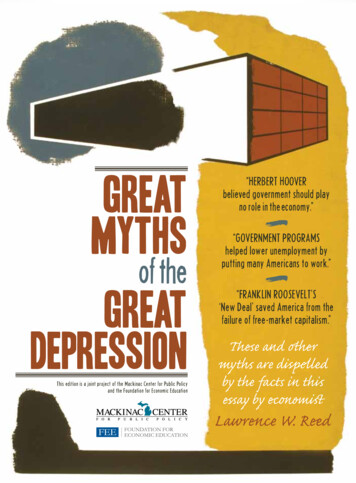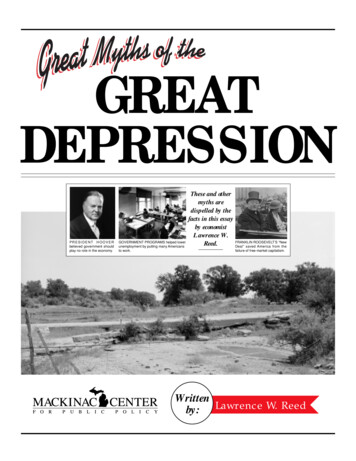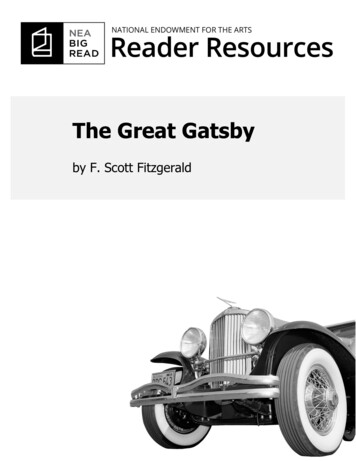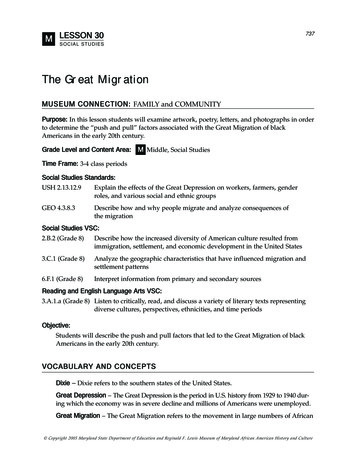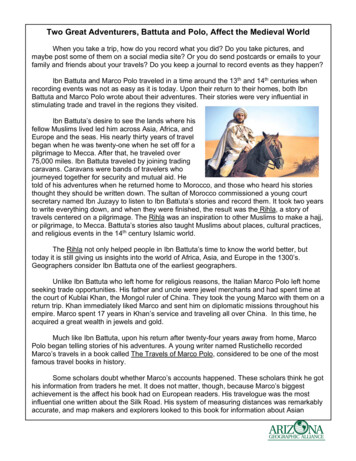
Transcription
Two Great Adventurers, Battuta and Polo, Affect the Medieval WorldWhen you take a trip, how do you record what you did? Do you take pictures, andmaybe post some of them on a social media site? Or you do send postcards or emails to yourfamily and friends about your travels? Do you keep a journal to record events as they happen?Ibn Battuta and Marco Polo traveled in a time around the 13th and 14th centuries whenrecording events was not as easy as it is today. Upon their return to their homes, both IbnBattuta and Marco Polo wrote about their adventures. Their stories were very influential instimulating trade and travel in the regions they visited.Ibn Battuta’s desire to see the lands where hisfellow Muslims lived led him across Asia, Africa, andEurope and the seas. His nearly thirty years of travelbegan when he was twenty-one when he set off for apilgrimage to Mecca. After that, he traveled over75,000 miles. Ibn Battuta traveled by joining tradingcaravans. Caravans were bands of travelers whojourneyed together for security and mutual aid. Hetold of his adventures when he returned home to Morocco, and those who heard his storiesthought they should be written down. The sultan of Morocco commissioned a young courtsecretary named Ibn Juzayy to listen to Ibn Battuta’s stories and record them. It took two yearsto write everything down, and when they were finished, the result was the Rihla, a story oftravels centered on a pilgrimage. The Rihla was an inspiration to other Muslims to make a hajj,or pilgrimage, to Mecca. Battuta’s stories also taught Muslims about places, cultural practices,and religious events in the 14th century Islamic world.The Rihla not only helped people in Ibn Battuta’s time to know the world better, buttoday it is still giving us insights into the world of Africa, Asia, and Europe in the 1300’s.Geographers consider Ibn Battuta one of the earliest geographers.Unlike Ibn Battuta who left home for religious reasons, the Italian Marco Polo left homeseeking trade opportunities. His father and uncle were jewel merchants and had spent time atthe court of Kublai Khan, the Mongol ruler of China. They took the young Marco with them on areturn trip. Khan immediately liked Marco and sent him on diplomatic missions throughout hisempire. Marco spent 17 years in Khan’s service and traveling all over China. In this time, heacquired a great wealth in jewels and gold.Much like Ibn Battuta, upon his return after twenty-four years away from home, MarcoPolo began telling stories of his adventures. A young writer named Rustichello recordedMarco’s travels in a book called The Travels of Marco Polo, considered to be one of the mostfamous travel books in history.Some scholars doubt whether Marco’s accounts happened. These scholars think he gothis information from traders he met. It does not matter, though, because Marco’s biggestachievement is the affect his book had on European readers. His travelogue was the mostinfluential one written about the Silk Road. His system of measuring distances was remarkablyaccurate, and map makers and explorers looked to this book for information about Asian
regions. Merchants used his book for planning commercial ventures. Sailors studied it to seeka route to India in the 15th century. One important sailor, ChristopherColumbus, relied heavily on Polo’s geography when he planned his voyageto sail west from Europe to reach Asian markets.On his death bed, Marco said that he had “only told half of what I saw,because no one would have believed me.” For Ibn Battuta, traveling “leavesyou speechless, then turns you into a storyteller.”These two Medieval travelers, the Moroccan Ibn Battuta, and the ItalianMarco Polo, although leaving their homes for different reasons, both greatlyinfluenced travel and trade of the people who heard and read their stories.
NameConvert the following distances.Practice with Miles & Kilometers1 mile 1.61 kilometers1. Ibn Battuta traveled between Mecca and Kilwa. The shortest distance was 3,000 miles.How many kilometers is this?a. 4,828 kilometers b. 3,866 kilometers c. 1,111 kilometers2.d. 530 kilometersMarco Polo traveled between Constantinople and Tabriz. The distance was 1,500kilometers. How many miles is this?a. 2,041 milesb. 1,513 miles c. 1,004 milesd. 932 milesUse the appropriate map to answer the following questions.3.What is the shortest distance Battuta traveled between Marrakech and Timbuktu?a. 2,500 miles b. 2,000 miles4.c. 1,700 milesApproximately how far did Polo travel between Sumatra and Yanzhou?a. 7,000 kilometers b. 4,500 kilometers5.d. 1,000 milesc. 2,500 kilometers d. 2,000 kilometersMarco Polo went from Venice to Jerusalem; Ibn Battuta went from Constantinople to Delhi.Which traveler went the greater distance?6. Ibn Battuta went from Bakhura to Calicut. Marco Polo traveled from Venice to Acre. Whotraveled the greater distance?7. Measure the distance Marco Polo traveled from Layas to Tabriz. Approximately how manymiles is that distance?8. Measure the distance Ibn Battuta traveled from Mecca to Baghdad. Approximately howmany kilometers is that distance?
Answer Key Practice with Miles & Kilometers1.2.3.4.5.adcaIbn Battuta went further; he traveled approximately 3,500 miles while Marco Polotraveled approximately 4,000 km.6. Ibn Battuta went further; he went approximately 2,500 miles and Marco Polotraveled approximately 2,750 km.7. The distance is approximately 750 km, or approximately 466 miles.8. The distance is approximately 1,100 miles, or approximately 1770 km.Answer Key for Assessment1. He wanted to go on a holy pilgrimage to Mecca.2. He wanted to get valuable silks and jewels from Asia.3. Any of these answers: influenced other Muslims to make a hajj, helped the Islamic worldunderstand other places and culture, or helped map the regions of Africa, Asia, andEurope4. Any of these answers: was the most influential one written about the Silk Road, tellsabout Mongol and Chinese society, helped trading merchants plan their ventures
AssessmentName1.Ibn Battuta left his home in Morocco and kept traveling for the next 29 years. What washis original purpose in leaving his home?2.Marco Polo left his home in Venice, Italy and was away from his home for 24 years.What was Polo’s purpose in leaving his home?3.What was one result of people reading Ibn Battuta’s story, the Rihla?4.What was one result of people reading Marco Polo’s story?
Ibn Battuta and Marco Polo traveled in a time around the 13th and 14th centuries when recording events was not as easy as it is today. Upon their return to their homes, both Ibn Battuta and Marco Polo wrote about their adventures. Their stories were very influential in
